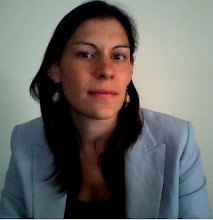Women Energizing Mexico's Election Season
Women's Enews
Run Date: 01/24/02
By Laurence Pantin
WEnews correspondent
Women in Mexico are seeking to take charge as political changes sweep the nation, running for top offices, talking about forming their own parties and openly campaigning for women's rights.
MEXICO CITY (WOMENSENEWS)--Women are running for president of two of this country's leading political parties, galvanizing women's rights advocates who say the candidates offer exciting visions of the future in Mexico.
Rosario Robles is looking to head the leftist Democratic Revolutionary Party and Beatriz Paredes is competing for the presidency of the centrist Revolutionary Institutional Party.
At the same time, some women leaders are discussing forming their own political party and those working within the current party structures are pushing for a change that would require that 30 percent or more of all candidates be female.
Even though they defend different political programs and have very distinct styles, Robles, 45, and Paredes, 48, have shown a firm commitment to pro-women principles.
"We want to lead the Democratic Revolutionary Party because we want a party committed to women and their dreams of liberty and equality," Robles said during the launch of her candidacy here on Jan. 16.
Robles, a professor and union leader before serving as the first woman mayor of Mexico City from 1999 to 2000, is well known for her defense of abortion rights. While heading Mexico City, she worked hard to decriminalize abortion in cases of rape, danger to the mother's health or fetal defects.
Paredes, ambassador to Cuba from 1993 to 1994 and now speaker of the House of Representatives, rose to power in 1987 when she became the second woman to serve as a state governor when she was elected to run her home state of Tlaxcala. She was recognized by the Washington-based International Women's Forum in 1995 as a "Woman Who Makes a Difference" for her efforts to open the political sphere to women.
If Robles and Paredes are elected presidents of their parties--observers say it's difficult to predict the outcome of either run--they have good chances of becoming candidates in the next presidential election in 2006. Their parties might form a coalition, however, in which case only one of them would run for president.
Both candidates face a stiff competition in the upcoming March elections--the second year of Mexico's transition to competitive elections--even though both parties currently have women at their helms, Amalia Garcia for the Democratic Revolutionary Party and Dulce Maria Sauri for the Institutional Revolutionary Party.
Political observers here say that Robles and Paredes are cut from different cloth from the current female leadership.
"There's a big gap between these women with so much political history and the mass of women who participate in politics," said Patricia Mercado, chair of Diversa Feminist Political Organization.
Yet, at the same time, women belonging to existing parties are also trying to reform the electoral code: They are urging a legal requirement that 30 percent of all parties' candidates be women, a policy that the law currently considers only a recommendation. Representatives of the four parties made the announcement on Jan. 16, anticipating the legislators' return to Congress on March 15 following a recess.
Right now, women comprise only 16 percent of Mexican legislators. Main parties have adopted internal rules of affirmative action, but when they pick candidates, they usually slate women to run for deputy positions or in locations where they have no chance of being elected.
"We want to share the responsibility of a new country, of a true democracy, and above all, the most important thing: We don't want to be the invisible ones," said Martha Lucia Micher, head of the Democratic Revolutionary Party's Women Secretary.
Some Women Turn Invisibility to Their Advantage
"Our political structure--be it parties, unions, or any space of possible political participation for women--is still very much misogynistic," said Gloria Chale, president of the Mexico City section of Diversa. "Now that women's participation is trendy, they have to show us like vases on every table."
This attitude might not be open, but it is felt every day, said Elena Tapia, elected in 2000 to be the head of the Iztacalco district of Mexico City. She says men lack confidence in women legislators and that women have to prove themselves twice over any man in the job.
But sometimes, women can take advantage of their lack of political experience.
"People have the idea that governments are run in a corrupt manner," Tapia added. "Women being new to politics, people trust them more, in terms of honesty, of an honorable way of dealing with resources, even of a more responsible handling of things, like a more efficient administration, just because all our lives, we've been accustomed to make the most out of the family budget."
The difficulties for women in Mexico's political parties are such that some women, including Mercado, Chale and Tapia have decided to create a feminist party, For Equity and Ecology, in order to increase women's political participation and representation.
Getting more women into decision-making positions is essential, Tapia said, because if children and teen-agers are accustomed to seeing women in leading positions, then women's political participation will become more natural.
"The idea is also finding new ways of making politics," Mercado said. "Finding new ways where everyday life counts."
Laurence Pantin is a journalist based in Mexico City.
For more information:
Pacific News Service"University Struggle Likely To ResoundIn Mexican Presidential Elections": http://www.pacificnews.org/jinn/stories/6.03/000214-strike.html
Discovery: Research and Scholarship at the University of Texas at Austin:"Women in Mexican Politics": http://www.utexas.edu/admin/opa/discovery/disc1998v15n2/disc_women.html
Global Women's Leadership: http://www.icrw.org/leadership.htm
http://www.womensenews.org/article.cfm/dyn/aid/793/context/archive
jueves, 24 de enero de 2002
Suscribirse a:
Comentarios (Atom)
